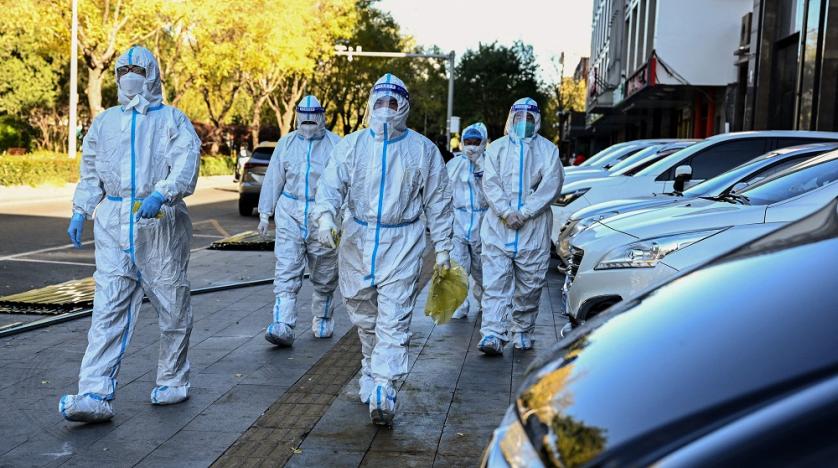China on Sunday announced its first new death from COVID-19 in nearly half a year as strict new measures are imposed in Beijing and across the country to ward against new outbreaks.
The death of the 87-year-old Beijing man was the first reported by the National Health Commission since May 26, bringing the total death toll to 5,227. The previous death was reported in Shanghai, which underwent a major surge in cases over the summer.
The announcement by the Zhengzhou city government came after a second child’s death was blamed on overzealous anti-virus enforcement. The 4-month-old girl died after suffering vomiting and diarrhea while in quarantine at a hotel in Zhengzhou.
Reports said it took her father 11 hours to get help after health care workers refused to provide assistance and she finally was sent to a hospital 100 kilometers (60 miles) away. Internet users expressed anger at “zero COVID” and demanded officials in Zhengzhou be punished for failing to help the public.
Nearly three years into the pandemic, while the rest of the world has largely opened up and the impact on the Chinese economy rises, Beijing has mostly kept its borders closed and discouraged travel even within the country.
That vulnerability is considered one reason why China has mostly kept its borders closed and is sticking with its rigid “zero-COVID” policy that seeks to wipe out infections through lockdowns, quarantines, case tracing and mass testing, despite the impact on normal life and the economy and rising public anger at the authorities.
The death of the 87-year-old Beijing man was the first reported by the National Health Commission since May 26, bringing the total death toll to 5,227. The previous death was reported in Shanghai, which underwent a major surge in cases over the summer.
The announcement by the Zhengzhou city government came after a second child’s death was blamed on overzealous anti-virus enforcement. The 4-month-old girl died after suffering vomiting and diarrhea while in quarantine at a hotel in Zhengzhou.
Reports said it took her father 11 hours to get help after health care workers refused to provide assistance and she finally was sent to a hospital 100 kilometers (60 miles) away. Internet users expressed anger at “zero COVID” and demanded officials in Zhengzhou be punished for failing to help the public.
Nearly three years into the pandemic, while the rest of the world has largely opened up and the impact on the Chinese economy rises, Beijing has mostly kept its borders closed and discouraged travel even within the country.
That vulnerability is considered one reason why China has mostly kept its borders closed and is sticking with its rigid “zero-COVID” policy that seeks to wipe out infections through lockdowns, quarantines, case tracing and mass testing, despite the impact on normal life and the economy and rising public anger at the authorities.


















